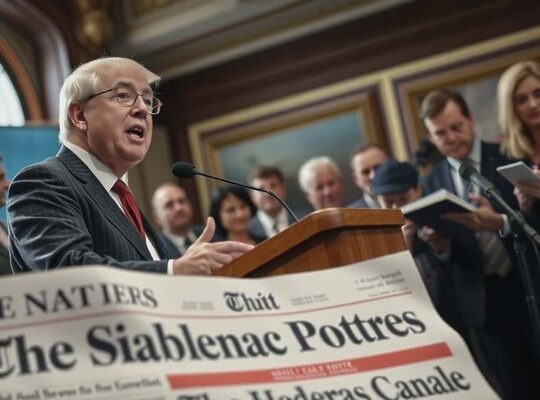Rising discontent within Germany’s business sector is coalescing around the proposed pension reforms spearheaded by the ruling SPD-CDU coalition, with a coalition of 32 industry associations issuing a stark warning to halt the legislative package. In a letter addressed to the parliamentary group leaders of the CDU/CSU and SPD, the organizations characterize the plans as “unsustainable” projecting an additional burden of nearly €480 billion by 2050.
The letter, signed by prominent bodies including the Federation of Wholesale and Foreign Trade (BGA), Gesamtmetall, the Construction Industry Association (ZDB), the Retail Trade Association (HDE), the Association of Family Businesses, the Engineering Employers’ Association (VDMA), the German Taxpayer Association and the Federation of Medium-Sized Businesses (BVMW), collectively representing approximately 17 million employees, accuse the government of fundamentally flawed pension policy. The proposed legislation, they contend, dangerously overextends the stability of the German pension system, rendering it neither generationally fair nor financially viable.
A key point of contention is the premature nature of the reforms. The newly established Pension Commission, tasked with restructuring the system from 2031 onwards, has yet to even begin its deliberations. The business groups argue that the current bill effectively eliminates any scope for the Commission’s future work.
The warning extends to the potential for systemic collapse. The letter highlights the escalating financial pressure on both employees and businesses. Workers face higher pension contributions or increased taxes to cover the growing deficit, while companies are losing competitiveness, accelerating the likelihood of production relocation and job losses to more cost-effective overseas markets. This, the associations argue, risks shattering the existing system of funded pensions.
The industry bodies are now calling for a fundamental policy reversal. Specific proposals include the abolishment of the “Rente mit 63” (retirement at 63) scheme, a modest increase in the standard retirement age and increased penalties for early retirement. This coordinated challenge to the government’s agenda underlines the growing political and economic tensions surrounding Germany’s future pension security and exposes a stark divergence between the government’s vision and the concerns of key stakeholders in the German economy.












